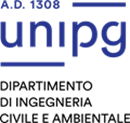Study-unit MATERIALS RECYCLING
| Course name | Sustainable materials and processes engineering |
|---|---|
| Study-unit Code | A002437 |
| Curriculum | Materiali per il green building |
| Lecturer | Debora Puglia |
| CFU | 9 |
| Course Regulation | Coorte 2023 |
| Supplied | 2024/25 |
| Type of study-unit | Obbligatorio (Required) |
| Type of learning activities | Attività formativa integrata |
| Partition |
RECYCLING AND REUTILIZATION OF POLYMERS
| Code | A002439 |
|---|---|
| CFU | 6 |
| Lecturer | Debora Puglia |
| Lecturers |
|
| Hours |
|
| Learning activities | Caratterizzante |
| Area | Ingegneria dei materiali |
| Sector | ING-IND/22 |
| Type of study-unit | Obbligatorio (Required) |
| Language of instruction | Italian |
| Contents | The course aims to illustrate the main processes and methods for the recovery and recycling of polymeric materials: the aspects to be considered in the management of a plastics recycling process, the degradation phenomena in the processing and service life of plastics, the classification of recycling technologies (primary, secondary, tertiary and quaternary) and examples of applications of recycled plastics. Emphasis will be placed on the definition of sustainability of polymeric materials, processes and production of polymers from renewable sources, biodegradability of polymeric materials, use of natural polymers and synthesis of biodegradable polymers |
| Reference texts | - R. Francis, Recycling of polymers, Wiley, 2017, ISBN: 978-3-527-33848-1 - Riutilizzo dei materiali polimerici, di Mauro Aglietto , Maria-Beatrice Coltelli, Nuova Cultura, 2015 - Powerpoint presentations of frontal lessons |
| Prerequisites | Knowledge of organic chemistry and polymer science |
| Teaching methods | The teaching activities are performed through lessons and collective discussions |
| Learning verification modality | Oral examination |
| Extended program | - Potential sources of recycled plastics. - Main aspects to consider when managing a plastics recycling process. Regulatory aspects. . Typology of plastic waste, collection, storage, separation of plastics from other materials, grinding, separation by type of plastics, compaction, granulation. - Degradation phenomena in the processing and service life of plastics. - Classification of recycling technologies. Primary recycling. Secondary recycling of homogeneous and mixed plastics. Tertiary recycling with recovery of monomers or oligomers. Quaternary recycling by combustion with energy recovery. - Plants for separating plastics for recycling. - Analysis of recycling possibilities for certain types of plastics. - Examples of applications of recycled plastics: recycling of thermoplastics, elastomers and thermosets. - Biodegradation: outlines on biopolymers, biodegradation and regulations, composting. |
SUSTAINABLE TREATMENT AND RECOVERY OF MATERIALS
| Code | A002438 |
|---|---|
| CFU | 3 |
| Lecturer | Giovanni Gigliotti |
| Lecturers |
|
| Hours |
|
| Learning activities | Affine/integrativa |
| Area | Attività formative affini o integrative |
| Sector | AGR/13 |
| Type of study-unit | Obbligatorio (Required) |
| Language of instruction | Italian |
| Contents | The course is aimed at learning the basic principles leading to the recovery of secondary raw materials from the industrial waste, waste and by-product cycle from the perspective of circular economy principles. The program focuses on the following topics: Waste management and regulatory context; Waste classification; Separate collection; Classification of different fractions; Treatments for recovery and recycling of different fractions. |
| Educational objectives | The purpose of the course is to provide the student with the scientific and engineering knowledge necessary for the understanding, analysis and design of material recovery technologies in a logic sustainable and circular economy. The course provides an overview of the main types of process sustainable industrial chemicals through the study of the latest innovative technologies in the production of hydrogen, ammonia, and carbon dioxide conversion processes to fuels in a circular economy logic. |
| Prerequisites | Knowledge acquired in Chemistry courses |
| Teaching methods | The course is organized as follows: - Classroom lectures on all course topics. |
| Learning verification modality | The examination includes an oral test |


